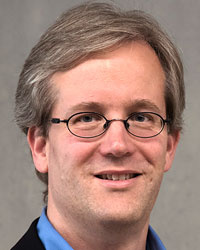Patrick Meraldi Group

Project at a glance
Our laboratory follows two main research lines.
First, we study the fundamental mechanisms that govern mitosis, and how cells ensure faithful chromosome segregation to preserve genomic integrity.
We investigate how cells build up and orient the mitotic spindle, how they control chromosome movements and place the chromosomes on the metaphase plate to ensure a symmetric division, and how cells prevent chromosome segregation errors. Our favorite “model system” are transformed and untransformed human tissue culture cells, which we manipulate with genetic tools, such as siRNAs, shRNAs, protein overexpressions or CRISPR-Cas9, and chemical inhibitors. These events are studied at the single cell level using quantitative fixed and live fluorescence microscopy. We moreover collaborate with Monica Gotta (Department of Cell Physiology and Metabolism) to study the mitotic spindle in the Caenorhabditis elegans embryo, using its powerful genetic tools to study mitosis in an embryonic environment.
Our second main research line is to investigate how a deregulation of cell division is linked to human pathologies, in particular cancer and brain developmental defects.
Indeed, frequent whole chromosome gain or loss during cell division and the resulting aneuploidy is a hallmark of most cancer tissues and potentially one of its causes; similarly, most of the genes related to microcephaly are cell division related. Our aim is to dissect the mechanistic origin of these defects, and in the case of cancer to explore how aneuploidy and the high frequency of chromosome gain/loss gain be exploited as an anti-cancer targets. For this purpose we also collaborate with the Oncology Department of the HUG, while to study microcephaly, we collaborate with Denis Jabaudon (Department of Basic Neurosciences) to expand our cellular findings to mouse genetics in the context of brain cortex development.

